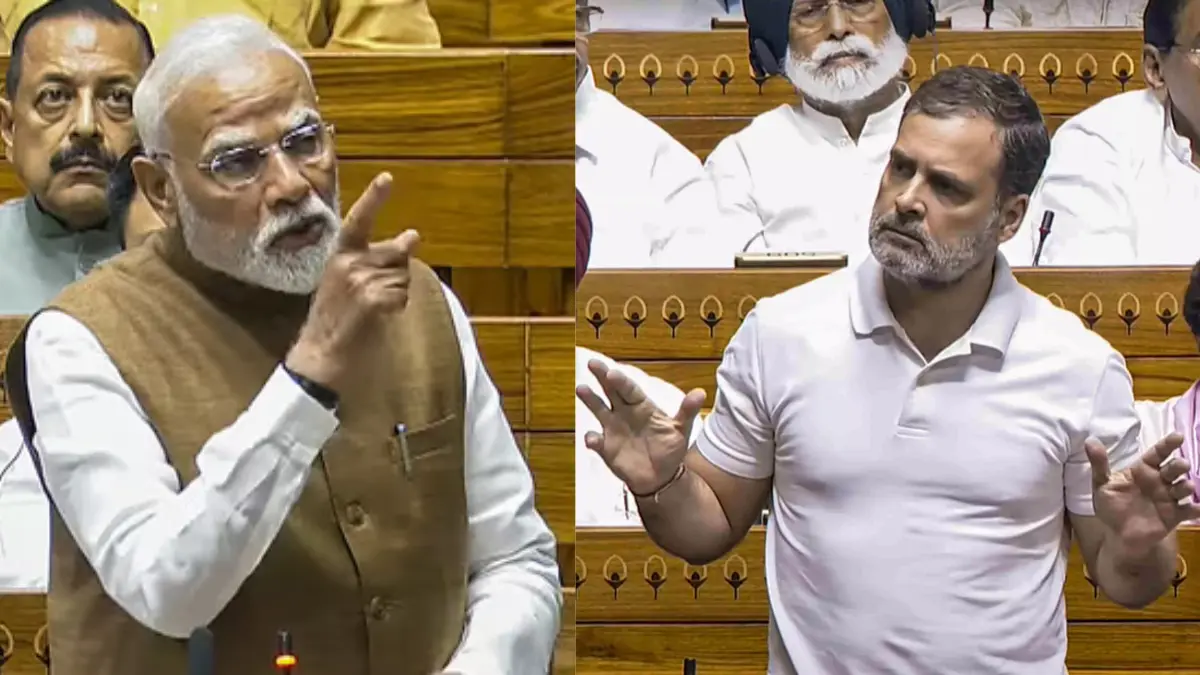PM Modi Breaks Silence on Operation Sindoor Ceasefire Controversy
In a much-anticipated address to Parliament, Prime Minister Narendra Modi firmly dismissed claims that the ceasefire during Operation Sindoor was influenced by the United States. His statement came in response to persistent allegations from opposition leader Rahul Gandhi, who cited U.S. President Donald Trump’s repeated assertions that he mediated the ceasefire between India and Pakistan.
“Let alone stopping it — Operation Sindoor is still ongoing,” PM Modi declared, directly countering Trump’s public claims of brokering peace.
Trump’s Claims vs. Modi’s Clarification
Donald Trump has claimed 29 times, according to opposition sources, that he personally ensured a ceasefire between India and Pakistan during the escalation. The U.S. President recently stated in a press conference that he helped stop a nuclear-capable conflict, citing it as one of the six wars he’s prevented globally.
In response, Rahul Gandhi challenged PM Modi in Parliament, demanding he publicly say:
“Trump is lying.”
And added,
“If you have even half the courage of Indira Gandhi, say it openly in the House.”
However, PM Modi chose not to name Trump directly, consistent with his long-standing communication style, but offered a pointed rebuttal:
“No world leader told India to stop the war.”
“When the U.S. Vice President called me repeatedly, I was in a military meeting and couldn’t take the call. Later, when I returned the call, I was told Pakistan was preparing for a major strike. I responded that if they do, they’ll pay dearly.”
JD Vance’s Call and U.S. Messaging
The Prime Minister acknowledged receiving a call from U.S. Senator JD Vance, who had recently visited India with his family. Reports by CNN on May 10 indicated that Vance had been asked by the U.S. administration to urge India toward de-escalation after receiving alarming intelligence from Pakistan.
However, PM Modi clarified that India’s response was not dictated by external pressure:
“We acted in self-defense and struck terror camps. If Pakistan escalates, we will respond with greater force. This was our clear message.”
India’s operation targeted key terror hubs on April 6-7 in response to a deadly attack in Pahalgam. Modi emphasized it was a non-escalatory strike, intended solely to neutralize terrorists without targeting Pakistani military or civilians.
Opposition Accuses Government of Capitulation
Rahul Gandhi’s most controversial statement accused the government of “surrendering in 35 minutes” and coined the phrase “Narendra Surrender.” He questioned the government’s intent, suggesting that informing Pakistan after the strike was a sign of weakness.
Critics argued that such language was irresponsible and misleading, especially when the Indian Army had informed the global community about its non-escalatory intent to avoid a broader war.
Ceasefire Triggered by Pakistan, Not India
Modi reiterated that India never initiated a ceasefire but responded after Pakistan’s Director General of Military Operations (DGMO) requested one. The Prime Minister emphasized that the ceasefire was an outcome of India’s superior position on the battlefield, not a concession.
“If Pakistan stopped firing, we naturally de-escalated. It wasn’t America’s request that influenced us—it was Pakistan’s request that ended it.”
Key Takeaways from PM Modi’s Address
- No foreign leader asked India to halt operations.
- U.S. Vice President’s call came after Pakistan began preparing for retaliation.
- JD Vance relayed concerns but received a firm response from India.
- India executed a targeted anti-terror operation under Operation Sindoor.
- The ceasefire was triggered by Pakistan’s formal request, not external diplomacy.
Conclusion
The Prime Minister’s statement in Parliament appears to have dispelled opposition allegations and reasserted India’s sovereignty in matters of national security. With extensive documentation, media reports, and international statements aligning with Modi’s narrative, it now seems evident that:
India’s decisions during Operation Sindoor were independently made, tactically precise, and not influenced by the United States.
The debate may continue politically, but Parliament and the nation have received a clear and decisive account from the country’s highest office.
